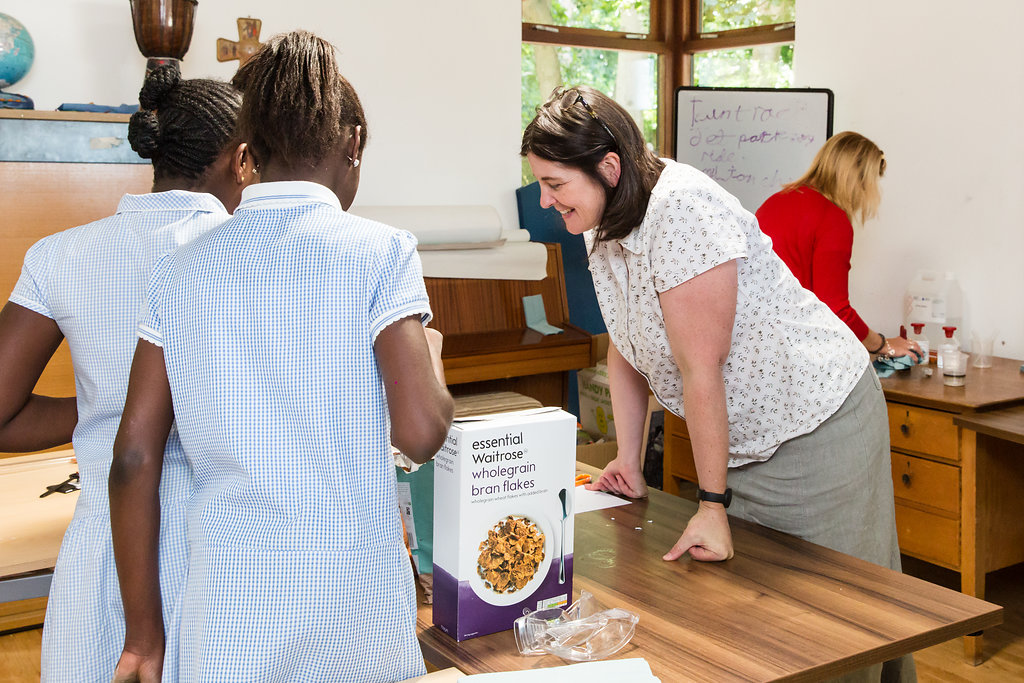
Reading + writing + arithmetic = great science
When Empiribox was launched last year, the founders made a big claim. Their product would revolutionise teaching in primary schools.
The company introduced specific, topic-based sets of science training (four each for physics, chemistry and biology) that not only covers the new National Primary Curriculum but, the company says, significantly enriches it; across all teaching areas.
The system includes suites of equipment, with accompanying schemes of work and lesson plans, and while teachers using Empiribox are quick to praise its benefits for science teaching, there are also plaudits for the benefits it brings to English teaching. It’s even ‘wowed’ an OFSTED inspector or two.
Freethorpe School in Norfolk used Empiribox resources as a core part of a school-wide cross curricular two-week project based on the book Itch by Simon Mayo.
Robbie Houghton, the school’s deputy head teacher, said: “This provided an amazing start to the year – the school was able to link literacy, maths, art, design technology and drama in order to immerse the children into the exciting world of elements. The cross-curricular writing produced throughout the week was of a very good standard, as the children were exposed to a high level of practical activities prior to completing their own work,” continued Houghton.
“Enthusiasm was harnessed from the start, producing a wide range of writing, including poetry, diary extracts and reports. Children used extensive scientific language in their everyday conversations. The immediate impact was to boost the confidence of all children in the class.
“This work has taken them beyond National Curriculum expectations. Several parents have been in to class, excited to hear directly from their children, what they had learned that day. Some were also impressed by the depth of knowledge and understanding their children had; I think the parents have learnt a lot too.”
Jennifer Iwantschak, a Year 6 teacher at Globe Primary in London, also says her pupils are applying the science skills they’ve developed to learning across other subjects.
“It’s been fantastic. We do some big writes for literacy and before, when we did science writing, they didn’t have enough knowledge to really elaborate on it in a big piece of writing. Now they do – they are really enthused about it.”
This effect is mirrored at other subscribing schools as well. “On literacy, they are now writing reams of work about their results, which is amazing. So I can see a huge difference in their work as a result (of their science lessons),” says Lucy Penn of Franklin Primary.
Empiribox Primary Science Trust C.I.C. is a social business; surpluses will be reinvested for the benefit of the primary education in England and Wales. And as a social enterprise it has a valuable role to play in helping create a strong, sustainable and socially inclusive primary school education system.
While the creator of Empiribox, Dan Sullivan was determined to make science teaching in primary schools’ fun, not just for the children but for the teachers as well, he also recognised that everything done in primary schools must have multiple benefits, particularly for progression in literacy and numeracy. Time and resources are limited; youngsters are demanding in their hunger for interesting lessons.
“Effective science teaching at primary school needs to be consistently exciting, interactive and investigation-based. That can only happen when teachers feel confident and their knowledge of the science that underpins each lesson helps make learning fun and relevant for pupils,” Sullivan says.
Teachers using the Empiribox suites get full training and access to topic-based class sets of training. The depth and breadth of the topics not only covers the new National Primary Curriculum but significantly enriches it, says Sullivan.
“As teachers enhance their subject knowledge and its application,” comments Sullivan, “they learn how to make critical observations about pupils and become better equipped to design lessons that might stretch those children that show an aptitude not just for science, but reading, writing and arithmetic as well.
Youngsters are encouraged to record their own data and make judgments as to outcomes of experiments and demonstrations. It’s a written (and spoken) evidenced-based experience. It gives them confidence: not only are children encouraged to ask ‘why’ in every lesson, they’re encouraged to write about what they see and record it.”
Jen Iwantschak’s pupils’ results speak for themselves. “I was observed in a science lesson when OFSTED came in, and they were really excited about it – they hadn’t seen a primary lesson before where the kids had so much knowledge. Not only was it clear they had knowledge, but they were also able to explain what they were doing to the OFSTED inspectors, and they were amazed by the experimental and investigative skills that the children had.”
Sullivan say that children taught using the Empiribox system will go to secondary school more prepared for science teaching at that level because they’re more confident with reading, writing and numeracy in all their classes.
And there are wider benefits for schools. Sullivan points to a number of management indicators he believes will be improved through the introduction of Empiribox into schools, namely the removal of stress, time and anxiety around planning the annual science curriculum, locating and paying for equipment and pressure in lessons for KS2, especially important for non-science qualified teachers.